Our Library
Explore our publications, from research papers and series to educational materials, covering all aspects of conflict transformation and peace promotion.
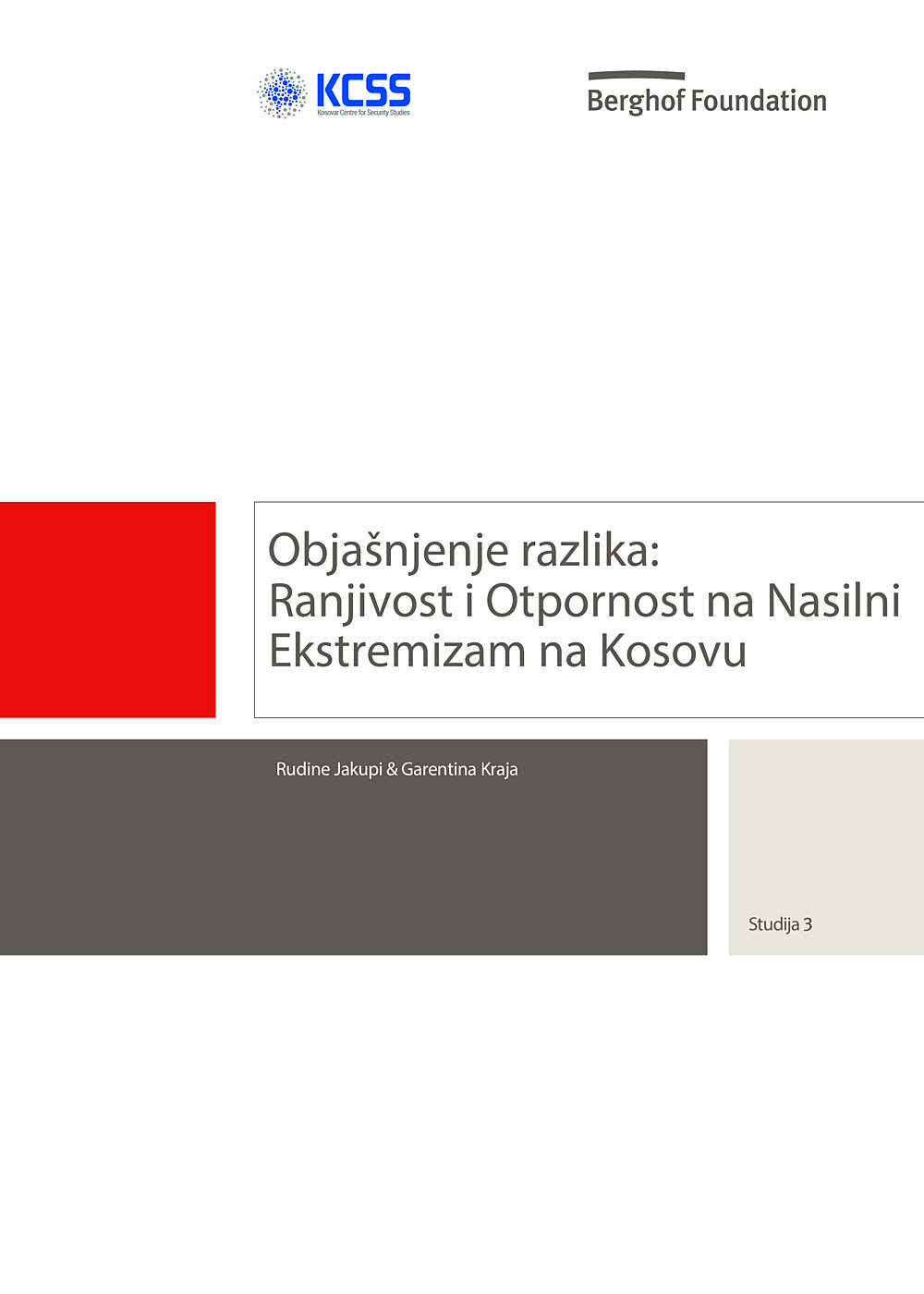
Objašnjenje razlikaRanjivost i Otpornost na Nasilni Ekstremizam na Kosovu
Ova studija o državi Kosovo je izrađena, pored tri ostalih koji pokrivaju Albaniju, Bosnu i Hercegovinu i Makedoniju, u okviru projekta participativnog izveštaja za “Mogućnosti za Sprečavanje Nasilnog Ekstremizma na Zapadnom Balkanu”. Zajedno sa četiri lokalna partnera istraživanja, istražili smo zašto su neke zajednice posebno pod uticajem pojedinaca inspirisanih od i/ili su se udružili Islamskoj Državi (ID) ili ostalim slićnim nasilnim ekstremnim grupama, dok ostale zajednice pokazuju veću otpornost na iste pojave. Na osnovu nalaza istraživanja, partneri projekta će sprovesti političko usmeravanje i iniciative lokalnog dialoga, u saradnji sa lokalnim sudionicima i zajednicama pod uticajem, da bi istražili i razvili strategije za sprečavanje nasilnog radikalizma na Zapadnom Balkanu.
- Year2018
- Author(s)Rudine Jakupi, Garentina Kraja
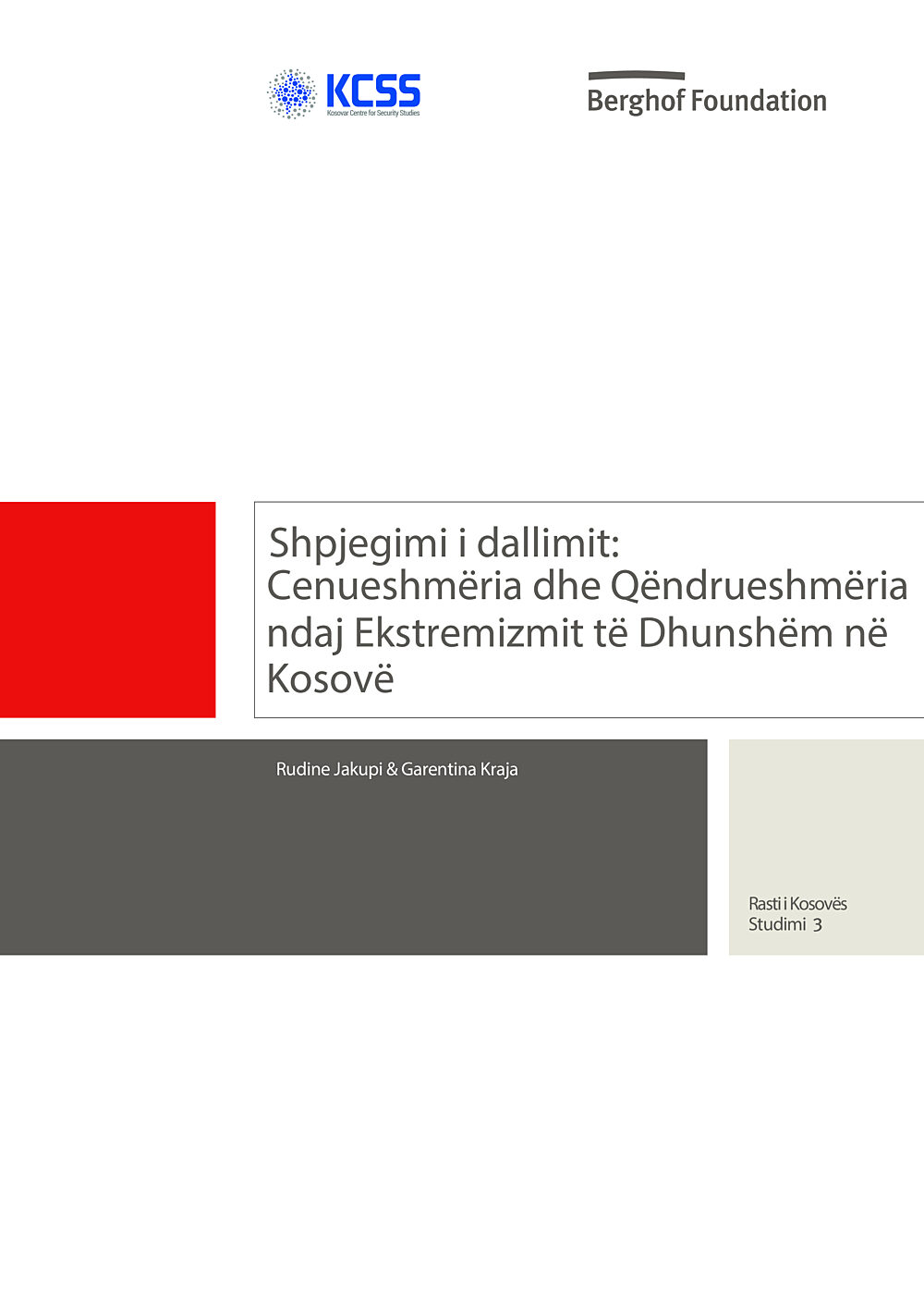
Shpjegimi i dallimitCenueshmëria dhe Qëndrueshmëria ndaj Ekstremizmit të Dhunshëm në Kosovë
Ky studim mbi ekstremizmin e dhunshëm në Kosovë është pjesë e iniciativës rajonale “Mundësitë për të Parandaluar Ekstremizmin e Dhunshëm në Ballkanin Perëndimor” që përfshinë Shqipërinë, Bosnje e Hercegovinën dhe Maqedoninë. Në këtë hulumtim, me ndihmën e partnerëve tonë vendor, Qendra Kosovare për Studime të Sigurisë ka hulumtuar dhe analizuar dallimet mes komuniteteve që janë prekur nga fenomeni i ekstremizmit të dhunshëm dhe atyre që i kanë bërë ballë atij.
Gjetjet e këtyre studimeve do të shërbejnë si bazë për të avokuar dhe për të ndërmarrë nisma për dialog në niveli komuniteti në bashkëpunim me akterët e ndryshëm lokal për të zhvilluar dhe hartuar strategji efektive për parandalimin e radikalizmit dhe ekstremizmit të dhunshëm në Ballkanin Perëndimor.
- Year2018
- Author(s)Rudine Jakupi, Garentina Kraja
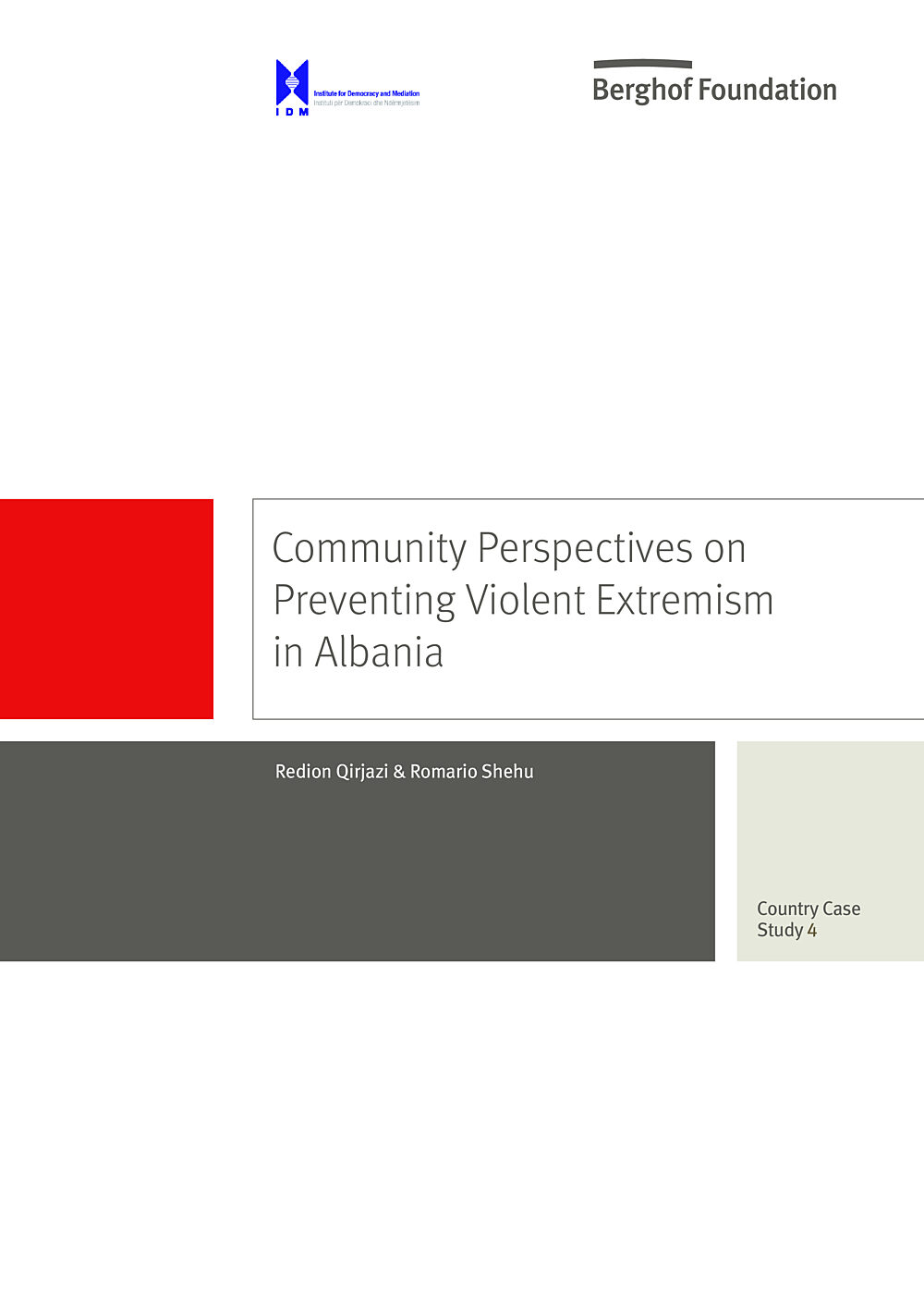
Community Perspectives on Preventing Violent Extremism in Albania
This country case study on Albania was produced, alongside three others covering Bosnia-Hercegovina, Kosovo and Macedonia, in the framework of a participatory research project on “Opportunities for Preventing Violent Extremism in the Western Balkans”. Together with four local research partners, we explore why some communities are particularly affected by individuals inspired by and/or joining the Islamic State (IS) or other similar violent extremist groups, while other communities may show greater resilience to the same phenomenon. Based on the research findings, the project partners will conduct policy outreach and local dialogue initiatives, in cooperation with local stakeholders and affected communities, in order to explore and develop strategies to prevent violent radicalisation in the Western Balkans.
- Year2018
- Author(s)Redion Qirjazi, Romario Shehu
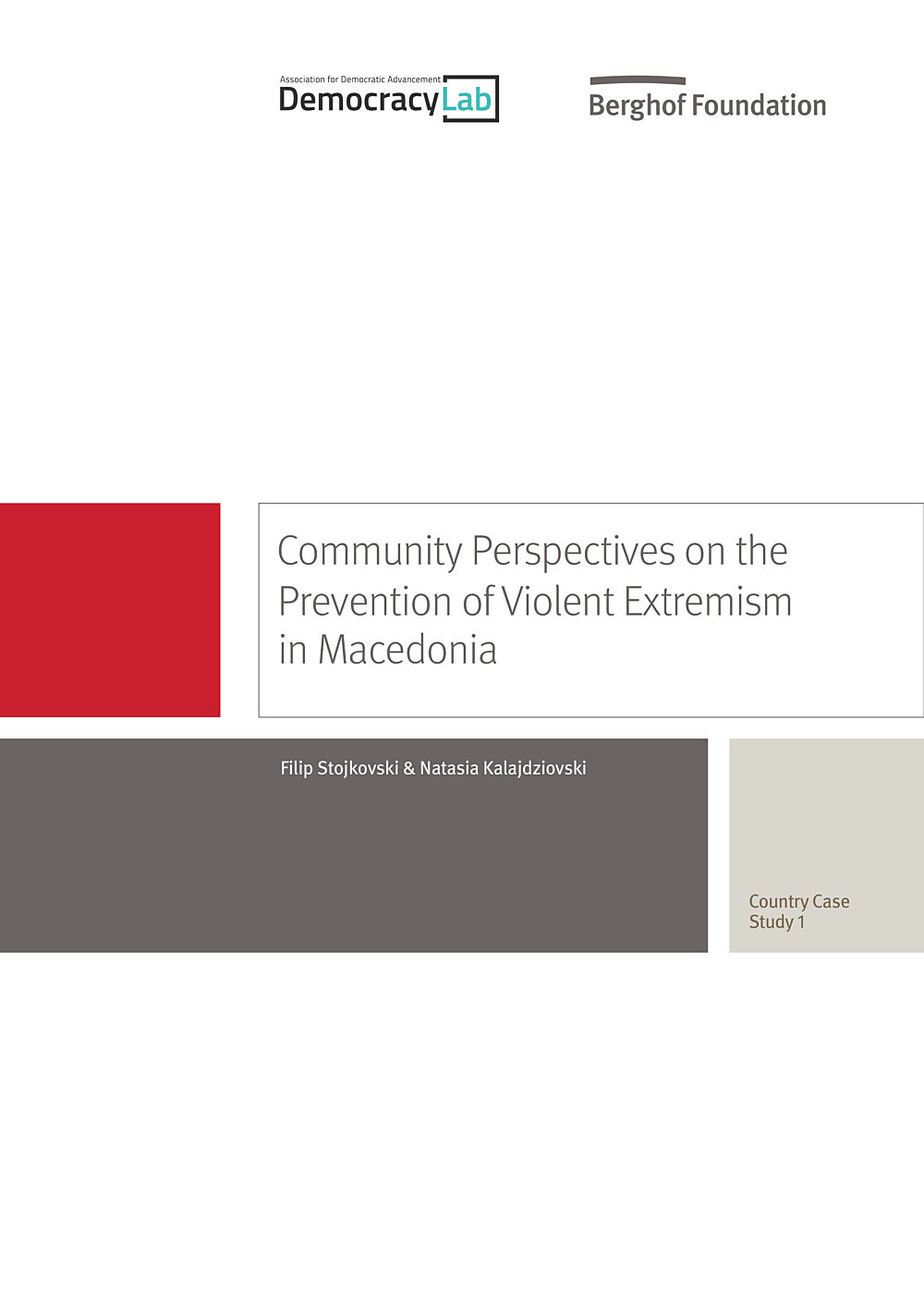
Community Perspectives on the Prevention of Violent Extremism in Macedonia
Increasingly, governmental strategies for preventing and countering violent extremism (P/CVE) are regarded as a necessary complement to broader counterterrorism strategies. Such inclusion is an acknowledgement that a pure securitisation approach is not entirely effective, and that a strategy which includes a “soft approach” to countering terrorism must seek to address social factors as well. However, within the Western Balkans region – and particularly in the Macedonian context – strategies to counter terrorism have been slow in adopting P/CVE approaches.
- Year2018
- Author(s)Filip Stojkovski, Natasia Kalajdziovski
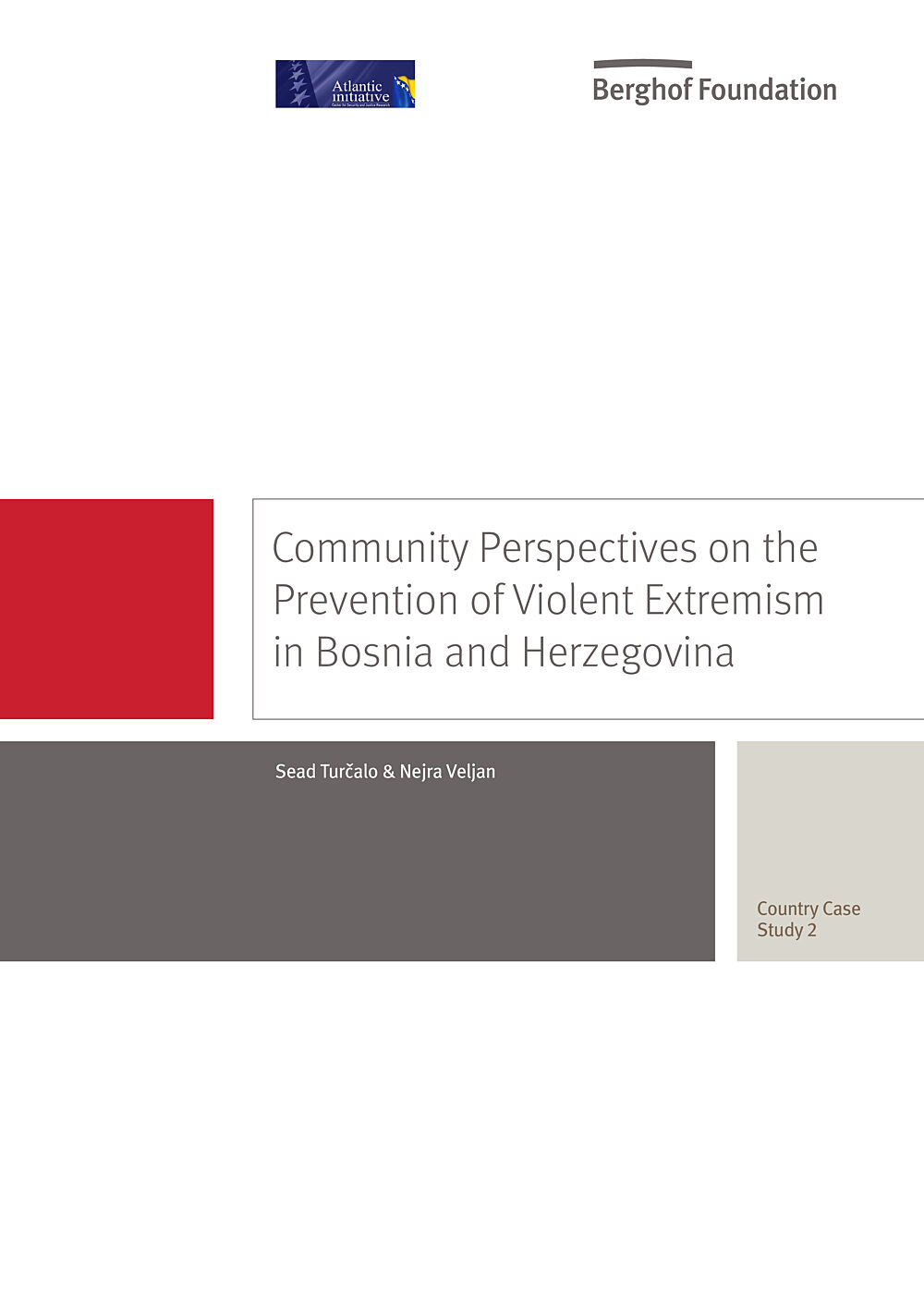
Community Perspectives on Preventing Violent Extremism in Bosnia and Hercegovina
This country case study on Bosnia and Hercegovina was produced, alongside three others covering Albania, Kosovo and Macedonia in the framework of a participatory research project on “Opportunities for Preventing Violent Extremism in the Western Balkans”. Together with four local research partners, we explore why some communities are particularly affected by individuals inspired by and/or joining the Islamic State (IS) or other similar violent extremist groups, while other communities may show greater resilience to the same phenomenon. Based on the research findings, the project partners will conduct policy outreach and local dialogue initiatives, in cooperation with local stakeholders and affected communities, in order to explore and develop strategies to prevent violent radicalisation in the Western Balkans.
- Year2018
- Author(s)Sead Turčalo, Nejra Veljan
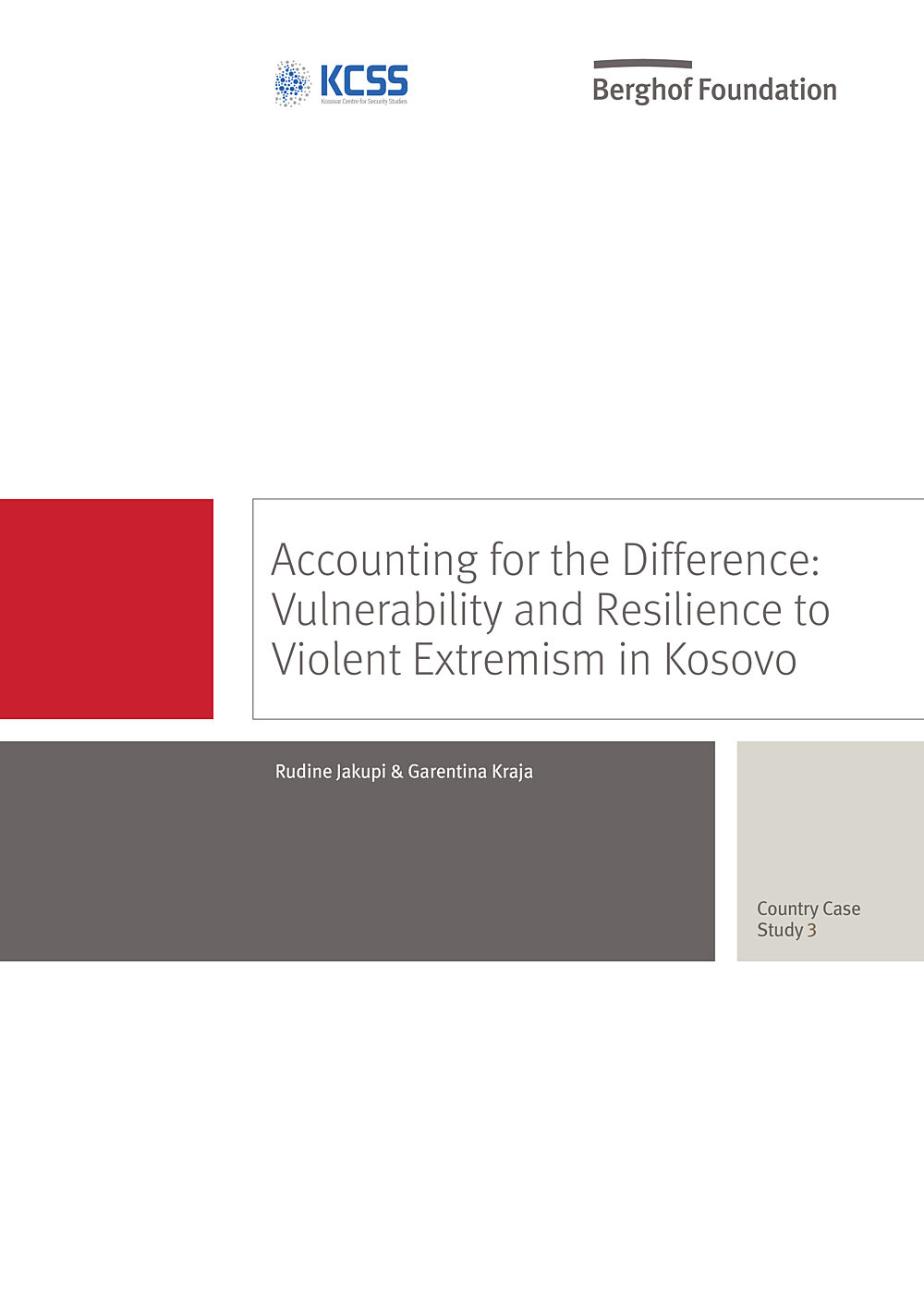
Accounting for the DifferenceVulnerability and Resilience to Violent Extremism in Kosovo
This country case study on Kosovo was produced, alongside three others covering Albania, Bosnia-Hercegovina and Macedonia, in the framework of a participatory research project on “Opportunities for Preventing Violent Extremism in the Western Balkans”. Together with four local research partners, we explore why some communities are particularly affected by individuals inspired by and/or joining the Islamic State (IS) or other similar violent extremist groups, while other communities may show greater resilience to the same phenomenon. Based on the research findings, the project partners will conduct policy outreach and local dialogue initiatives, in cooperation with local stakeholders and affected communities, in order to explore and develop strategies to prevent violent radicalisation in the Western Balkans.
- Year2018
- Author(s)Rudine Jakupi, Garentina Kraja
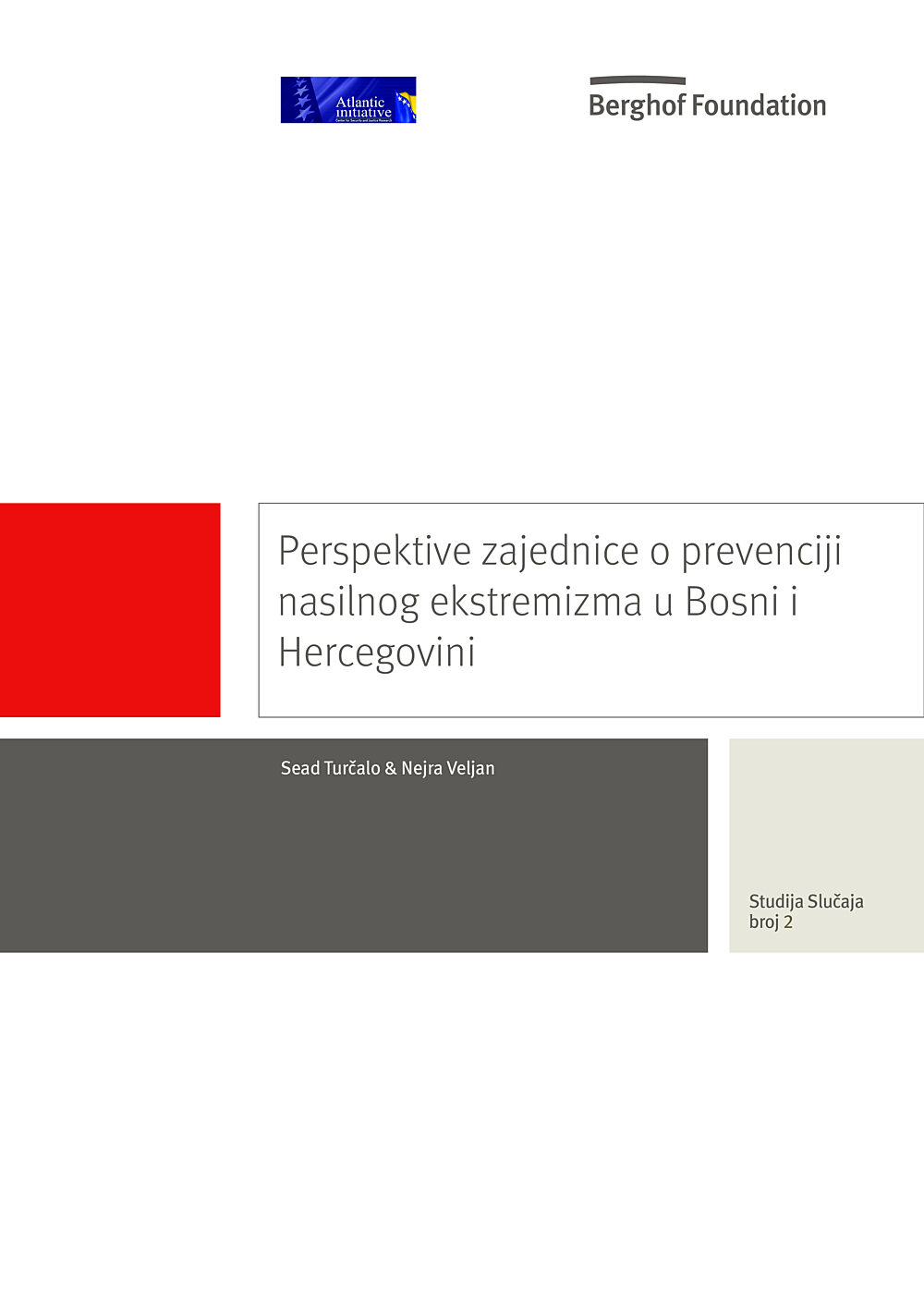
Perspektive zajednice o prevenciji nasilnog ekstremizma u Bosni i Hercegovini
Studija slučaja o Bosni i Hercegovini realizirana je zajedno sa tri izvještaja koja su obuhvaćala Albaniju, Kosovo i Makedoniju u okviru participativnog istraživačkog projekta »Mogućnosti sprečavanja nasilnog ekstremizma na zapadnom Balkanu«. Zajedno sa četiri istraživačka partnera istraživali smo zašto su neke zajednice pogođene pojedinim osobama koje su inspirisane da se pridruže Islamskoj državi ili sličnim nasilnim ekstremističkim skupinama, dok su ostale zajednice pokazale veću otpornost na isti fenomen. Na temelju rezultata istraživanja, projektni partneri će provoditi inicijativu lokalnog dijaloga i predloziti smjernce za razvijanje politika a sve u suradnji s lokalnim sluzbenicima i pogođenim zajednicama, kako bi istražili i razvili strategije za sprečavanje nasilne radikalizacije na zapadnom Balkanu.
- Year2018
- Author(s)Sead Turčalo, Nejra Veljan
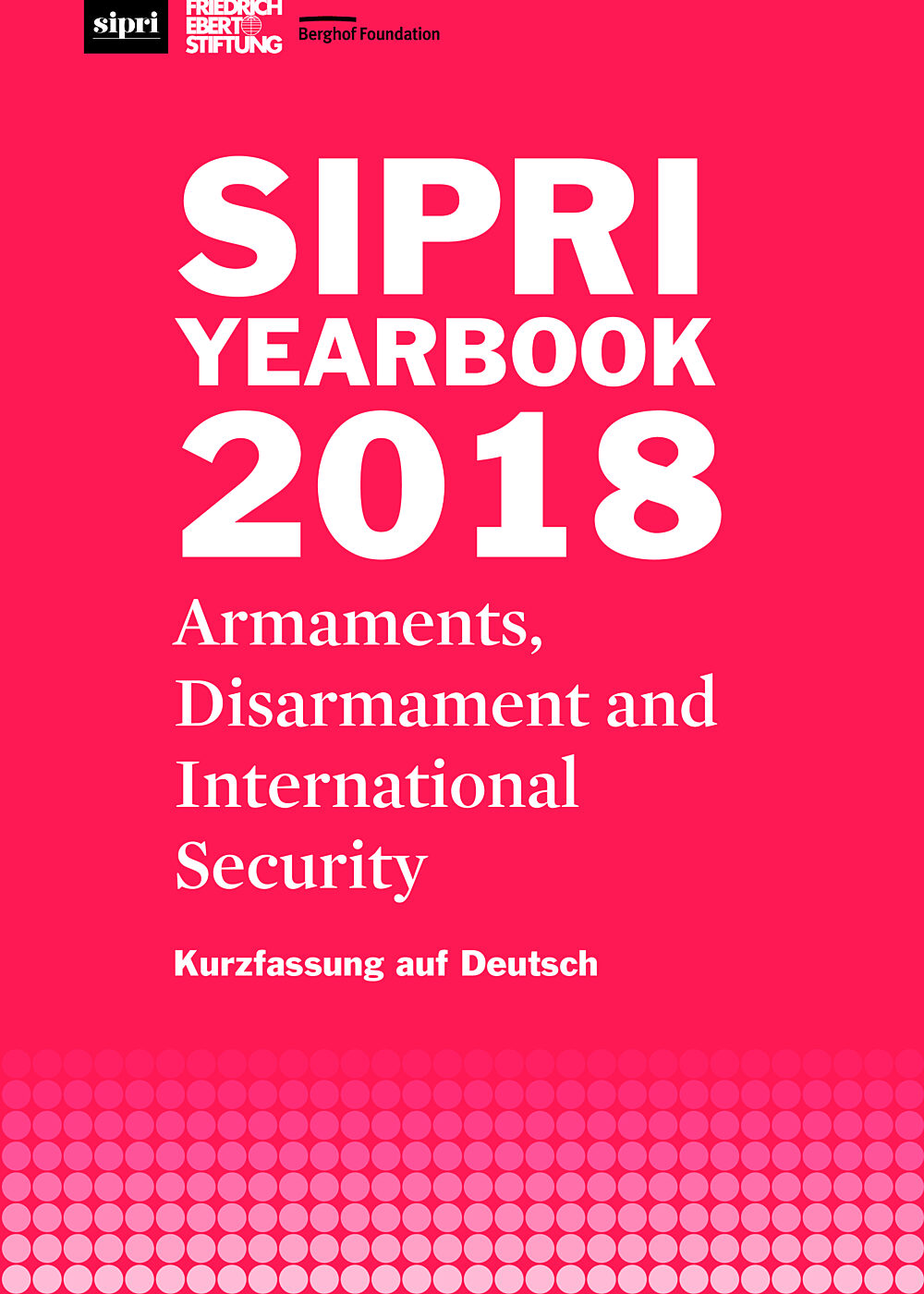
SIPRI Yearbook 2018Armaments, Disarmaments and International Security (Kurzfassung Deutsch)
- Year2018
- Author(s)Stockholm International Peace Research Institute (SIPRI)
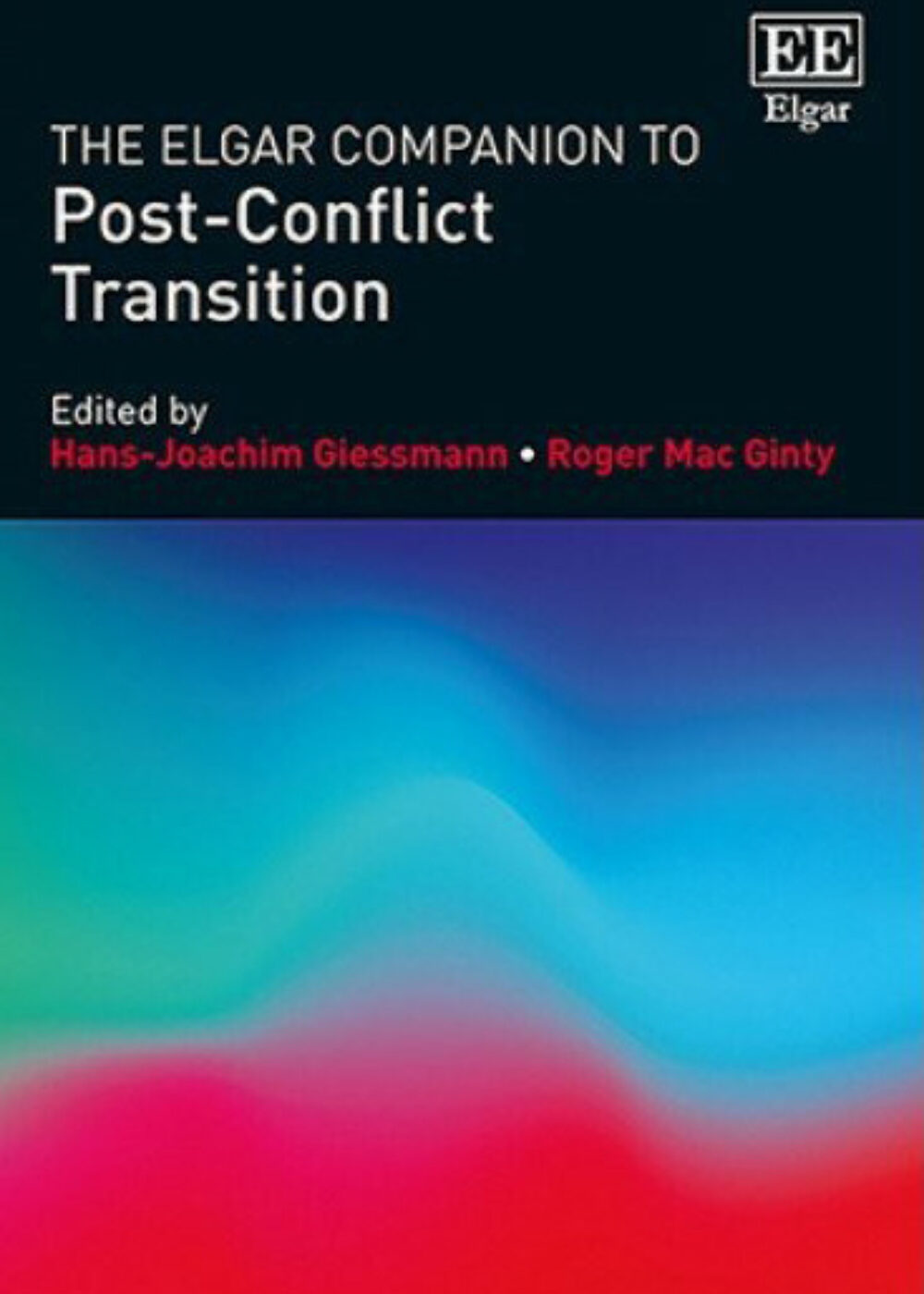
The Elgar Companion to Post-Conflict Transition
What are the main drivers of political transition and regime change? And to what extent do these apparently seismic political changes result in real change? These questions are the focus of this comparative study written by a mix of scholars and practitioners.
This state-of-the-art volume identifies patterns in political transitions, but is largely unconvinced that these transitions bring about real change to the underlying structures of society. Patriarchy, land tenure, and economic systems often remain immune to change, despite the headlines.
- Year2018
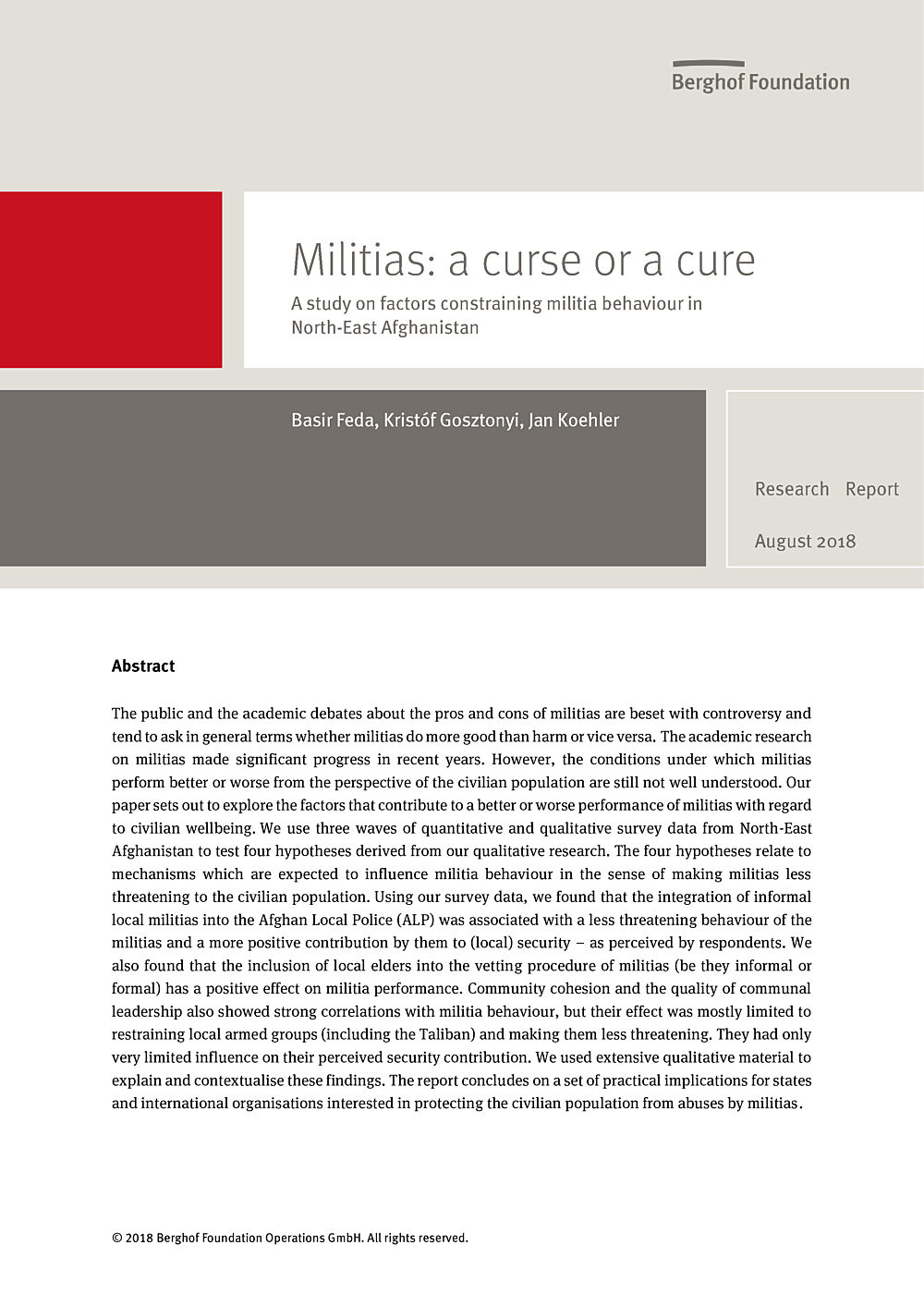
Militias: a curse or a cureA study on factors constraining militia behaviour in North-East Afghanistan
The public and the academic debates about the pros and cons of militias are beset with controversy and tend to ask in general terms whether militias do more good than harm or vice versa. The academic research on militias made significant progress in recent years. However, the conditions under which militias perform better or worse from the perspective of the civilian population are still not well understood.
Our paper sets out to explore the factors that contribute to a better or worse performance of militias with regard to civilian wellbeing. We use three waves of quantitative and qualitative survey data from North-East Afghanistan to test four hypotheses derived from our qualitative research. The four hypotheses relate to mechanisms which are expected to influence militia behaviour in the sense of making militias less threatening to the civilian population.
- Year2018
- Author(s)Basir Feda, Kristóf Gosztonyi, Jan Koehler